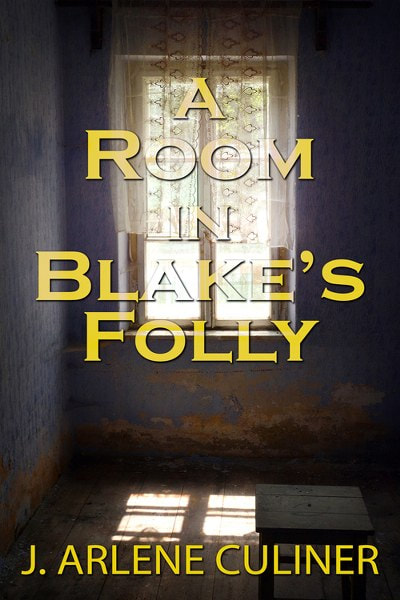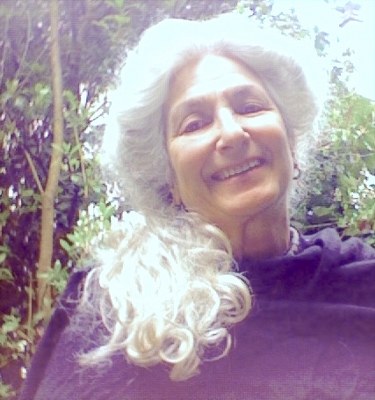“You a widow?”
“No.” She could hear the tightness in her voice and feel the tension in her shoulders.
His eyes glinted. “A runaway wife.”
“Not that either.” Did she have to say more? She didn’t. But since people were bound to be asking that same question over and over, she might as well get used to it, even though the answer was only partially true. Even though it could never express what her life had been like up until now. “I left of my own accord, but with my husband’s full agreement. He’ll be looking into getting a divorce.”
“And your children?”
Ah, there it was. The big question, the one thing everyone would be curious about. “No children. I’ve never had any.”
He said nothing. Had he heard the note of anger in her voice? She’d done her best to sound neutral, but neutrality wasn’t an easy note to hit. How vividly she remembered the first time she’d caught sight of her future husband, Sam Graham, waiting with a little knot of men by a shanty train station in the middle of nowhere. He and the others had been eager to grab a sight of their brides-to-be, women lured west by the promise of marriage, land, and a home. How had the other women fared? Had they been as discouraged as she at the sight of the vast lonely wasteland, the emptiness, the bleached-out colors, and the coarse men who would be their lifetime partners? Men honed by the elements, a hard life. And rough alcohol.
Westley Cranston stood, walked in her direction—no, walk wasn’t the word she could use. He sauntered, a slow, elegant saunter. A man sure of himself, of his power to seduce. Yes, that was why she’d felt so wary yesterday. He stopped when he was standing beside her. Smiled. No, there was nothing seductive in his smile. She’d been wrong. What had she been imagining? That she was still the young attractive woman she’d been years ago? What a fool she was.
He touched the top of the piano with a gesture that was almost a caress. “Don’t worry. You’ll do well. The boys you’ll be playing with are good musicians, nice guys, too. They play at all the dances in town, and they’ll teach you the sort of pieces folks out here are used to hearing.”
“Thank you.”
His eyebrows rose. “For what?”
“For being so kind.”
“Kind?” He guffawed. “It’s not kindness. I’m fighting for survival. High time we got a good piano player in this place. Bob, before he let that stray bullet hit him, knew how to slap at the keys, all right, but he didn’t know the first thing about keeping time. I’ll bet pretty well all the customers were happy to see him taken out of the running.” Grinning, he moved away in that casual easy way of his, headed toward the front door. Then stopped, looked back, his eyes twinkling. “But they couldn’t do that, not legally, anyway. One of the rules here in town forbids shooting pistols in a barroom.”
She grinned back at him. “Sounds like a pretty good rule to me. And what are the other rules, if you don’t mind me asking. If there are any others, that is…”
“Sure there are. Need plenty of rules in boomtowns, especially after payday. The other ones are, you can’t insult a woman, you can’t ride a pony or horse on the wooden sidewalks, and you can’t ride them inside this establishment or any other business in town.” He was chuckling again when he turned the lock, stepped out into the street, and disappeared.
Hattie remained seated at the piano. Her anguish had totally vanished. Amazing, how he had put her at ease. He hadn’t judged her, hadn’t looked at her with disgust when she’d told him some of her story, hadn’t condemned her for feeling unsure about her piano playing. She wondered why she’d felt so mistrustful. He had behaved like a perfect gentleman—and a friend.
Then another thought struck her. What had he been doing here in the Mizpah so early in the morning? Had he slept here? Obviously he had. Hadn’t he just let himself out? And that meant he had probably spent the night with one of the ladies upstairs. That he was a client.
Disappointment washed over her. She couldn’t condemn him—men had needs, desires. Why was she so saddened by the thought?
Excerpt 2
Lance saw the woman doubled over in the dirt road, her legs bent backward and to each side of her in what looked to be an exceedingly painful position. Had she been hit by a car? Probably not: few enough cars passed this way. She might have had an attack of some sort. He loped toward her, thinking only of rescue and alleviating pain, because that’s what a veterinarian’s job is all about, and humans happen to be animals, too.
He was less than ten feet away, when she raised her head and glared at him with fury. The look, as toxic as a poison arrow, halted him in his tracks. She certainly didn’t look as though she needed his help. She didn’t look as though she’d ever need anyone’s help.
“Um…I’m sorry. I saw you down there, in the road, and I thought…”
He saw her fury seep away, transform into visible regret. “You chased it away.”
“Right.”
Swinging her bent legs into a more reasonable position, she stood up without using her hands. For someone who wasn’t young, she looked to be in perfect shape. Or at least she had maintained an admirable flexibility.
He knew who she was, all right. Who else had a long bushy ponytail of silvery hair? Who else had three dogs trailing after her—three dogs now sitting calmly in the shade of the abandoned laundry and watching him, wary-eyed. They knew he was one of the vets who gave them shots every year, and that meant he was no real friend.
The woman in front of him, what was her name? Lucy something…oh yes, Lucy Barnes, and she worked in Rose Badger’s vintage clothing shop whenever Rose roared off to Reno. For the first time, he noticed the camera.
“Look, I thought you had fallen or…”
“Yes, I realize that’s what you thought.” She didn’t look as though she were about to forgive him for it either.
“You were taking a photo?”
“Yup.”
“Of what?”
“A Xysticus.”
“A what?
“Oh, sorry. A ground crab spider.”
“Of a ground crab spider?”
She relented slightly. “They’re called crab spiders because they look and move like crabs.”
“Yes,” he said dryly. “I think I’ve worked that one out.”
“Right.”
“What for? Why were you taking a photo?”
“Because I like them. I like macro photography, I like taking photos of spiders, and this particular spider was very pretty.”
“Pretty. Got it.”
She looked annoyed again. “Veterinarians don’t consider arachnids worthy of notice?”
“Did I just tell you that?” he said a little too defensively because she was right: he never noticed them. Okay, he never killed them either, because he knew how useful they were, but that was as far as things went. “What was particularly pretty about that one? I mean spiders look like spiders to me. I never thought aesthetics came into it.”
“Really?” She even looked surprised.
“Really.” Inwardly, he sighed, regretting his attempt to maintain chatty conversation. It was always the same when you dealt with nuts, cranks, and fanatics: they couldn’t understand how normal people functioned.
“Most crab spiders are brown-beige so they can blend into their surroundings and catch prey easily. They do have splotches though, and this one had a nice leaf marking on its opisthosoma.” She smirked. “Sorry, that’s the posterior part of the body. The front part is the—”
“Prosoma,” he interrupted.
The smirk faded and, wordlessly, she stared at him. It was his turn to be haughty. “Since you know I’m a veterinarian, you’ll probably accept that, in this century, we do go to school. And while we’re there, we manage to study a little science.”
“Sorry,” she said contritely.
“That’s all right.” He tried not to look too self-satisfied.
#Western #Historical #Contemporary #Romance #Family #Saga #aRoomInBlakesFolly #JArleneCuliner








I like the cover, synopsis and excerpts, A Room in Blake's Folly sounds like a must read for me. Thank you for sharing the author's bio and book details
ReplyDeleteThis sounds like such an interesting read! Thanks so much for sharing.
ReplyDelete